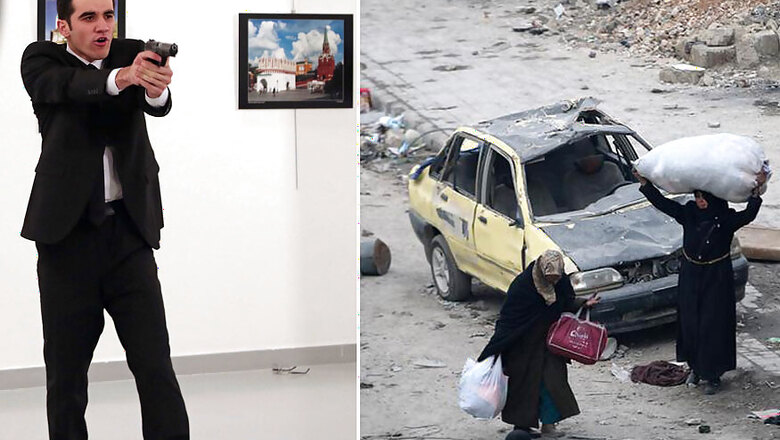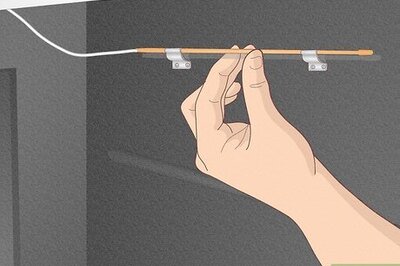
views
With these three words, an off-duty police officer shot dead the Russian Ambassador to Turkey Andrey Karlov right in the middle of an art exhibition in Ankara. Those three words will be splashed on newspaper headlines and internet banners across the world. Those three words make it apparent that the real motive of this despicable crime lay across Turkey’s borders, over in Syria.
Last week, Bashar Al Assad’s forces recaptured the largest Syrian city Aleppo, the same city where almost six years ago a rebellion had started against the President and his family’s more than four and a half decades long rule. Today, Aleppo is a city in ruins. But more than the destruction it’s the manner of the killing of its citizens that should shame us all.
Aleppo, along with Srebrenica and Kigali would go down in modern history as one of the worst genocides. But atleast when the Kosovan War or the Rwandan genocide happened, the world still seemed to have its moral bearings, there was a moral and ethical obligation on the leading powers of the time to stop the killing and maiming of innocents.
The international community woke up late, but at least it did wake up. In the case of Aleppo and Syria, it sets a disturbing new trend. A dictator using inhuman mean, chemical weapons, air-bombings, targeted killings of his own people, can contain a rebellion, howsoever strong it is, with the help of a friendly big power.
The West let down Aleppo. We all let down Aleppo. The moral obligation of hundred thousand deaths lies at the doorstep of Barack Obama, David Cameron and Angela Merkel. The West, after getting a bloody nose in Iraq and Afghanistan was wary of military intervention. Hence, when the Arab Spring broke, it relied on the mass of people, first in Tunisia, then in Egypt to turn on their leaders.
Syria was the fifth country where rebellion broke out after the first two, then Bahrain and then Yemen. And in at least four out of those five, powerful long-standing rulers had been thrown out in popular uprisings. Bahrain was the only exception. The only reason why Bahrain was able to quickly quell the dissent was because its biggest backer Saudi Arabia, its neighbor to the west, ran down tanks across the main boulevard of Manama. But it sent a message to powerful dictators and their benefactors the world over. That it is possible to crush a rebellion with just brute force.
The Syrian and Russian Presidents have much to celebrate after the fall of Aleppo. After all, it’s taken almost 6 years coming. But even after the Kosovan War, an attempt was made to bring the powerful to some semblance of justice. Case in point being that of Slobodan Milosevic and his powerful military commanders. But I don’t foresee the possibility of Bashar Al Assad or Vladimir Putin standing trial for war crimes and crimes against humanity. And that will be the greater shame.




















Comments
0 comment